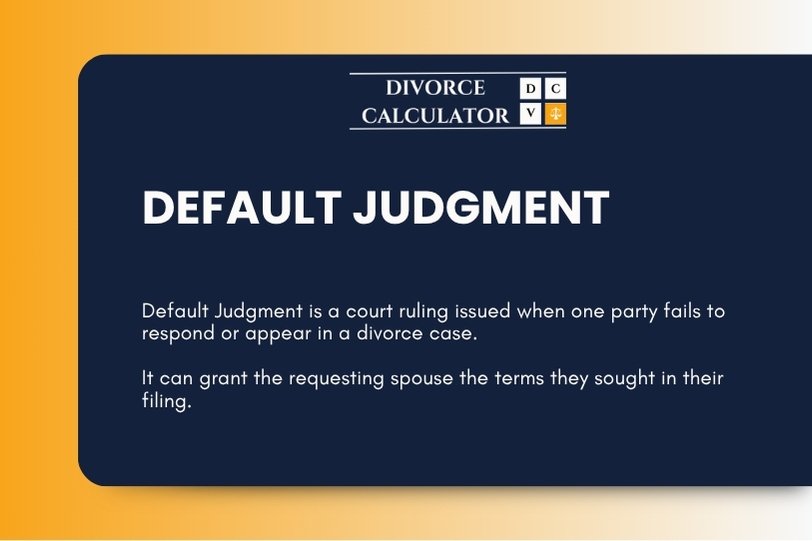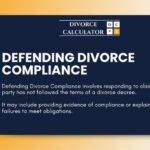When someone fails to respond to a lawsuit, the court may grant a default judgment in favor of the other party. A default judgment means the party who didn’t participate automatically loses their case, and the court will likely award what the plaintiff requested. This outcome can have serious, lasting effects on legal rights and finances.
We encounter default judgments more often than most people expect, especially in debt collection, eviction, or contract disputes. Understanding what default judgment is and how it works is essential, whether we’re facing a lawsuit or seeking to enforce our rights in court.
Key Takeaways
A default judgment occurs when one party fails to respond or appear in court. It allows the court to decide in favor of the other party without a trial.
Table: Default Judgment Essentials
| Aspect | Description |
|---|---|
| When It Happens | No response or appearance by the defendant |
| Result | Plaintiff may win by default |
| Common in | Civil cases, including debt and contract disputes |
We should note the legal process must be followed precisely. Even if a judgment is given, parties may have limited options to challenge or set aside the default.
Default Judgment Pros & Cons
- Pros: Faster resolution, lower costs, no trial needed.
- Cons: Risk of unfairness if the absent party had a valid reason, possible challenges later.
We must always ensure notice requirements are met. If either party receives a default judgment, reviewing our rights for reopening the case may be appropriate, especially if there was a mistake or excusable neglect.
Careful attention to deadlines and court documents is critical. Missing key steps can lead to default judgment and loss of rights.

Why It Matters In Divorce
When we go through a divorce, a default judgment can significantly affect the outcome. If one spouse does not respond or participate in the proceedings, the court may move forward without their input. This often means the judge relies only on the information presented by the spouse who participates.
Key implications of a default judgment in divorce:
- Property Division: The court typically accepts the petitioning spouse’s proposals for dividing assets.
- Child Custody: Custody arrangements may be decided based only on one side’s requests.
- Spousal and Child Support: Support orders can be determined by the petitioner’s suggested amounts.
Default judgments may result in one party losing the opportunity to negotiate or challenge requests. We may find that failing to respond limits our ability to ensure fair terms.
Sometimes, default can speed up the divorce process, but it carries real risks. The spouse who does not answer often has little say in the final outcome. This is why we must pay close attention to court deadlines and requirements during a divorce.
Real-Life Examples
In civil court, we often see default judgments when a defendant does not file an answer to a complaint. For example, if a landlord sues a tenant for unpaid rent and the tenant fails to respond, the court may grant default judgment in the landlord’s favor.
We can find default judgments in debt collection cases as well. Suppose a credit card company sues a customer for unpaid bills, but the customer ignores the lawsuit paperwork. If the customer does not appear in court or file a response, the judge may automatically decide the case for the credit card company.
Here is a simple table illustrating how default judgments arise:
| Scenario | Action by Defendant | Result |
|---|---|---|
| Tenant sued for rent | No response | Judge issues default |
| Borrower sued for loan | Misses court date | Plaintiff wins by default |
| Business sued for contract breach | Fails to appear | Default judgment entered |
In family law, we may encounter a default judgment for divorce if one spouse files and the other does not answer. The court can grant the divorce and related requests without input from the absent spouse.
Any party who fails to participate or respond on time risks losing by default, which underscores the importance of meeting all court deadlines.
How States Handle It
Default judgment procedures and requirements differ by state, impacting timelines, court forms, and the type of relief available. Knowing state-specific processes is essential for litigants seeking or defending against default judgments.
New York
In New York, default judgment is governed by CPLR 3215. If a defendant does not respond within the prescribed time—usually 20 or 30 days depending on service—we may apply for a default judgment.
For sum certain cases, such as unpaid debts, clerks can enter judgment upon proof of service and the proper documents. Other claims, like personal injury, require court approval and sometimes a hearing to assess damages.
Notably, New York courts allow defendants to file a motion to vacate if they have a reasonable excuse and a meritorious defense. Timeframes matter; if action isn’t taken promptly, the opportunity to reopen the case may be lost.
California
California’s Code of Civil Procedure sections 585–587 control default judgments. If a defendant fails to respond within 30 days, we can file a request for entry of default, followed by a request for a default judgment.
Different requirements apply depending on the nature of the claim. For straightforward contract cases, judgment may be entered by the court clerk without a hearing. For personal injury and other claims not involving a sum certain, we often need to provide evidence, affidavits, or attend a prove-up hearing.
Defendants can move to set aside a default judgment under certain circumstances, such as mistake, inadvertence, surprise, or excusable neglect—usually within six months of judgment entry.
Texas
Texas relies on Rule 239 of the Texas Rules of Civil Procedure for default judgments. If no answer is filed by the stated deadline, plaintiffs may seek default after showing the defendant was properly served and has failed to respond.
If the claim is for a liquidated amount, the judge may grant default without an evidentiary hearing. For unliquidated damages, such as personal injuries, evidence and a hearing are required to determine the amount.
Defendants can file a motion for a new trial within 30 days of the judgment. Texas courts may grant this if there is a good reason, such as lack of notice or documented mistake.
Florida
Under Florida Rules of Civil Procedure 1.500, we can request a default if the other party fails to file a timely response. The clerk typically enters default for failure to answer, but a judge is required for cases involving damages.
If damages are not specified, the court conducts a hearing before issuing a final judgment. This step ensures that damages are substantiated through testimony or affidavits.
Defendants have the option to seek relief by filing a motion to set aside the default based on reasons like excusable neglect. Florida emphasizes prompt action; failure to act quickly may foreclose this remedy.
Tips If You’re Dealing With Default Judgment
If we receive notice of a default judgment, it’s important not to ignore it. Taking prompt action may give us more options to address the situation.
We should review the judgment documents carefully. Confirm details like the court name, case number, and the amount ordered.
Collect all relevant paperwork, such as copies of the original lawsuit, court notices, and communications we received. Organized records make it easier to communicate our position clearly.
Consider consulting an attorney or seeking help from a legal aid organization. Legal professionals can advise us on whether we have grounds to challenge the judgment or ask the court to set it aside.
If we have a valid reason—like not receiving the original lawsuit papers—we can file a motion to vacate or set aside the default judgment. Courts may consider credible excuses, but we must act quickly.
It’s useful to contact the court clerk to ask about deadlines and procedures. Deadlines for challenging a default judgment can be short, often a matter of weeks.
Since default judgments can affect our credit and finances, we should check our credit report and watch for collection activity. If there are errors, it’s important to dispute them right away.
Key Steps Table
| Step | Action to Take |
|---|---|
| Receive Notice | Don’t ignore communications |
| Gather Information | Collect all documents |
| Seek Legal Advice | Contact a professional |
| File a Motion (if appropriate) | Act quickly on valid grounds |
| Monitor Credit Report | Check for negative impacts |
Frequently Asked Questions
Understanding default judgments is important because they can immediately impact legal status, finances, and creditworthiness. Our rights and options may vary greatly depending on jurisdiction and the specifics of the case.
What are the consequences of a default judgment being entered?
When a default judgment is entered, we can become liable for damages or other relief requested by the opposing party. This often means we may have to pay money, surrender property, or comply with specific actions ordered by the court.
If left unaddressed, additional penalties or interest can accrue, and enforcement actions like wage garnishment or liens may follow.
How can one vacate a default judgment?
To vacate a default judgment, we typically need to file a motion with the court, showing both a valid reason for not responding initially and a meritorious defense. Common reasons include not being properly served with court papers or having a legitimate excuse, such as illness or unforeseen events.
Courts set strict deadlines for these requests, and missing them can reduce our chances of success.
What are the steps to appeal a default judgment?
The appeal process generally involves filing a notice of appeal within a designated time period set by state or federal rules. We must follow procedural requirements, including submitting records and legal briefs explaining the grounds for appeal.
Not every default judgment can be appealed, especially if the error was failing to respond rather than a legal mistake by the court.
What is the process for collecting on a default judgment?
Once a default judgment is secured, the party awarded judgment may pursue collection through legal means like wage garnishment, bank account levies, or property liens. The court may assist in enforcing the judgment, but the responsibility remains with the judgment creditor to initiate collection actions.
State laws often govern the available methods and exemptions.
How can a default judgment impact credit ratings?
Credit reporting agencies often receive information about default judgments, and these typically appear on our credit reports. This can lower our credit scores, making it harder to obtain loans, rent housing, or secure favorable interest rates.
Judgments generally remain on credit reports for several years, even after they are paid or resolved.
Are there any state-specific considerations for default judgments?
Yes, state laws determine deadlines, notice requirements, and procedures for challenging or enforcing default judgments. For example, some states may require special affidavits or additional time to respond if we are out of state.
It is important to review local statutes and court rules, as differences between jurisdictions may significantly affect our options and obligations.



